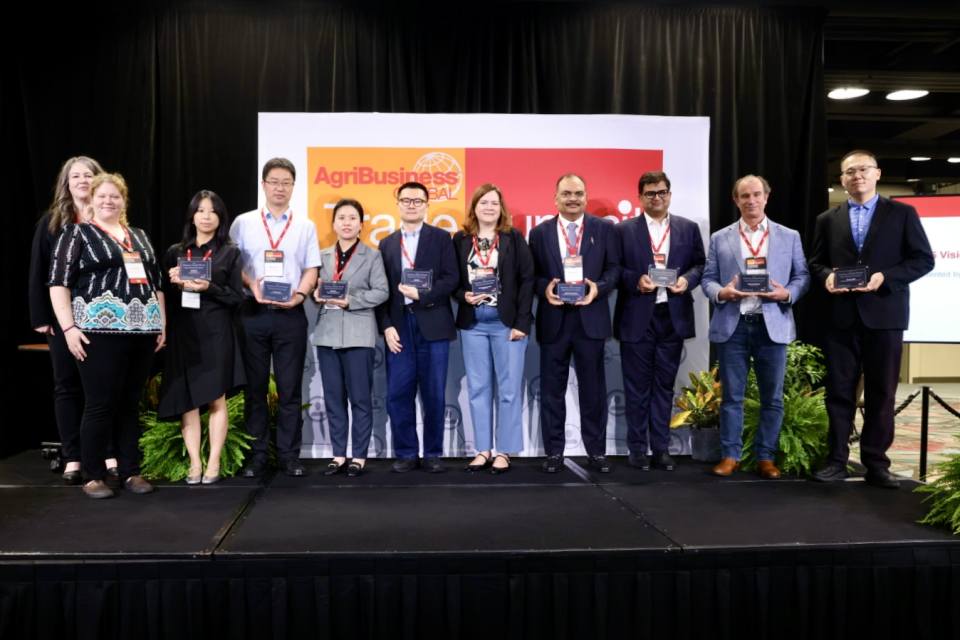A Barrage Of Biotech
To Appreciate the global influence of genetically modified (GM) seeds, one needs to look no further than the flood of new 2007 GM varieties and traits available from Monsanto, DuPont, and Dow AgroSciences, as well as the new range of options available in 2008.
Created for use against pests and pesticides, weeds and herbicides, and drought and disease in a variety of different crops, GM seeds are bursting out all over.
Protecting Corn And Soybeans
Drought is the major stressor affecting the most corn every year. DuPont took on this challenge, responding with subsidiary Pioneer Hi-Bred Brand Hybrids for Drought Tolerance, which not only are able to survive in drought conditions, but can also perform competitively if soil moisture conditions are to improve.
Another new technology is Herculex XTRA, which protects corn roots from rootworm pressure under a range of growing conditions.
In University of Illinois head-to-head trials, Pioneer hybrids with Herculex XTRA performed significantly better than the YieldGard VT Triple trait against very high corn rootworm infestation, which can cause yield losses from 10% to more than 30%.
Monsanto’s own hybrid defender against corn rootworms — YieldGard Corn Borer, stacked with the Roundup Ready Corn 2 trait — was recently approved by the EU for use in food and feed.
With corn crops increasing worldwide due to the ethanol boom, seed producers have incorporated the need for higher ethanol production into their offerings.
Dow AgroSciences’ Mycogen brand, a highly fermentable corn hybrid, features Herculex XTRA for insect protection and the latest weed control options for increased yield.
Dave Schumacher, marketing specialist at Mycogen Seeds, says, “As industry projections predict the demand for corn for ethanol to more than double in the next decade, growers need to arm themselves with high-yielding and highly fermentable corn hybrids.”
Monsanto’s next-generation Roundup RReady2Yield soybeans have an improved yield benefit of 7% to 11% over the company’s first-generation Roundup Ready soybeans. Commercial launch is expected in limited US markets in 2009, and nationally in 2010.
Monsanto intends to use this base to launch its portfolio of next-generation soybean technologies, including dicamba tolerant and intrinsic yield soybeans.
The Future Of GM Varieties
After a trait is licensed, it can be sold to other seed purveyors. One such agreement has been reached by Monsanto and Dow AgroSciences to cross-license SmartStax, the industy’s first eight-gene stacked combination in corn.
The two companies will create a unique seed variety which combines eight herbicide tolerant genes with above- and below-ground insect-protective systems into the companies’ top-performing hybrids. The resulting seeds will possess technologies such as Dow AgroScience’s Herculex I and Herculex RW; Monsanto’s YieldGard VT Rootworm/RR2 and YieldGard VT PRO; as well as leading weed control systems Roundup Ready and Liberty Link.
Monsanto’s Executive Vice President of Strategy and Operations, Carl Casale, described the collaboration. “By bringing together the two companies that have developed and commercialized the trait technoloties widely used in agriculture today, we can provide farmers an ‘all-in-one’ answer to demands for comprehensive yield protection from weed and insect threats. Farmers will have more product choices to optimize performance and protection,” Casale said, “and that translates into a higher-yielding opportunity and a new growth proposition for their businesses and ours.”
Dow Agrosciences is also developing herbicide tolerance traits against phenoxy auxins like 2,4-D and aryloxyphenoxypropionate “fop” grass herbicides. Dow estimates a 2012 launch for these traits for corn, and 2014 for soybeans.
Specialized Research
Research in GM varieties is becoming a more specialized endeavor across the world to bring the same advantages enjoyed by large-acre crops to smaller fields.
In India, the fruit and shoot borer pest is responsible for significant eggplant yield loss. A resistant variety has been developed by the seed company Mahyco, with field trials to be conducted at the public Indian Institute of Vegetable Research of the Indian Council of Agriculture in the country’s first large-scale field trial of a GM food crop.
Research on genetic traits and biotechnology are taking place on larger scales in both India and China, where a number of crops, including some high value fruits and vegetables, are being explored.
The hybrids under investigation will be customized to the unique pest, disease, and climatic conditions where they are grown. Both countries have reaped the rewards of biotechnology in other crops, most notably cotton. Recently, Indian farmers surpassed Chinese farmers in their adoption of Bacillus thuringiensis (Bt) cotton, persuaded by the evidence of five consecutive record cotton crops since Bt was introduced in India.
Several neighboring countries are expected to follow India’s example in the near future.





